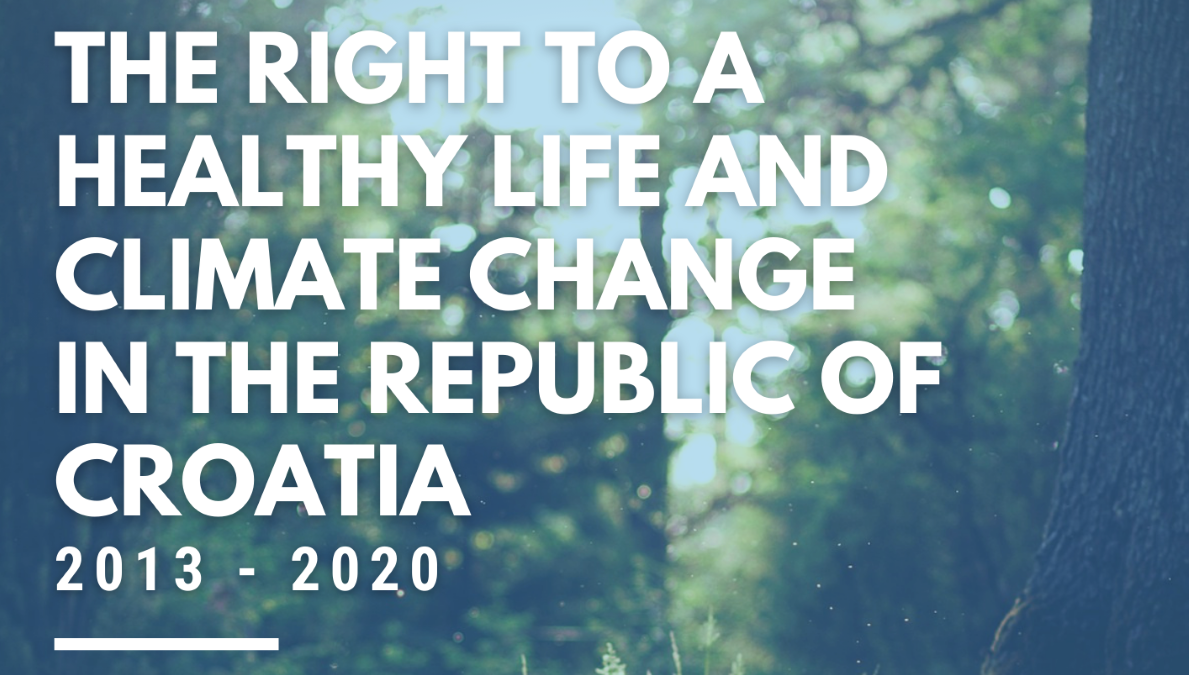Ombudswoman’s Special Report on the Right to a Healthy Life and Climate Change in the Republic of Croatia in the Period 2013-2020 submitted to the Parliament this February demonstrates the interconnections between environmental protection and human rights, provides an evaluation of the level of the implementation of the right to a healthy life as guaranteed by the Constitution of the Republic of Croatia and presents an analysis of the issues related to the protection of air, water and soil, light and noise pollution non-ionizing radiation emitted by mobile telecommunications stations, sustainable waste management and climate change.
Addressing these topics is especially important keeping in mind the insufficient level of awareness of both the state institutions as well as the general public of the importance of the protection of the environment, nature, climate and human health, resulting in the inadequate level of protection of the right to a healthy life. It is also timely in the context of climate change, the consequences of which have already impacted Croatia in the form of the floods affecting the eastern parts of the country in 2014 and the fires that swept through parts of its coastal region in 2017.
It begs the question whether the COVID-19 pandemic the world is currently facing is a mere coincidence or a logical consequence of climate change and an occurrence we can only expect to increase in frequency in the years to come. In its reports the UN has been pointing to the increased risk of zoonotic diseases, the spread of which is considered to be directly connected to the destruction of the various species’ habitats and the loss of biodiversity. The pandemic itself, stresses the UN, is the best indicator of the interconnections between the protection of the environment and human health and other fundamental rights and freedoms. Additionally, in its reports and studies the European Environmental Agency has pointed to possible interconnections between air pollution, poverty and higher COVID-19 mortality rates.
The present report is based on our work on the complaints submitted to us by the citizens and civil society organizations, cases opened on our own initiative, data collected from the competent authorities, field work as well as our participation in legislative activities. The implementation of its recommendations and engaging in environmentally sound policies and institutional action, in line with the European Green Deal – a document at the foundations of the European Union’s COVID-19 response, would contribute to the strengthening of the protection of the right to a healthy life and, thus, of human rights more generally.
Please find the Report here.


